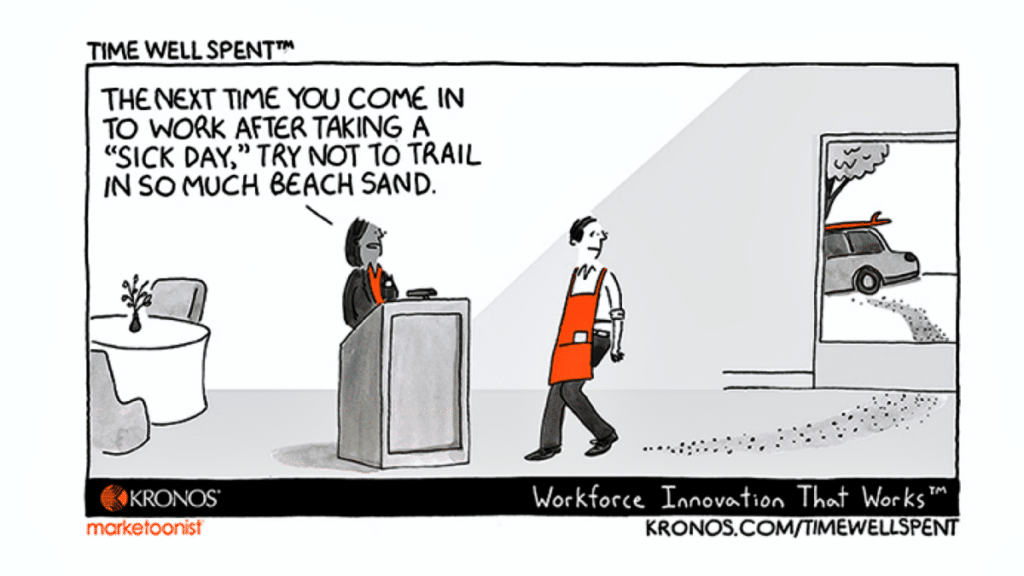Unlimited Time Off Programs: Don’t Force Employees to Lie About Their Whereabouts
(Editor’s Note: Today’s article is brought to you by our friends at Kronos, a leading provider of workforce management and human capital management cloud solutions. Kronos recently announced that, in less than a month’s span, it was named to four separate best workplaces lists by Great Place to Work in Canada, India, Mexico, and the United Kingdom. Many congratulations to them! Enjoy the article.)

As summer is coming to an end, I’m reminded that one of the best workplace trends to happen in business today is unlimited time off programs. Not because we can take a lot of time off, although that can be nice. It’s because we don’t need to lie about where we are.
Today’s Time Well Spent from our friends at Kronos took me back to a time when, if we wanted to enjoy a beach day, we would suddenly come down with some sort of illness (cough. cough.). Of course, that illness is the 24-hour type and it’s not one where we usually need to visit a doctor and get some sort of note. You know what I’m talking about.
With unlimited time off programs, when we want to get in our last beach day before pumpkin spice season, we simply work it into our schedule. We coordinate our plans with colleagues and the boss. And we take the day off guilt-free.
Unlimited time off programs allow employees to be honest about their time-off request. A founding principle in positive workplace cultures is trust. For employee engagement to happen, it requires trust. If we want to create and maintain trust in the workplace, then we can’t design employee programs that require a lie for employees to use them.
When employees can plan, their productivity increases. One of the biggest challenges when employees call off at the last minute is getting the work done. Everyone has to juggle schedules, and something always gets pushed to the side. Unlimited time off programs allow employees to have more control over their schedule, which means they can plan their work in advance.
Managers don’t want to confront employees about this type of stuff. Don’t get me wrong, managers know that part of their job is to address behavioral issues. And they will do that when they need to. But managers also want to be cool. They don’t like being placed in a position where they have to nag employees about every little thing.
If you’re thinking to yourself that unlimited time off programs are a recipe for workplace anarchy, check out the article I wrote last year about how Kronos implemented an unlimited time off program and its results. Employees are using the program responsibly and the company is able to redirect the savings toward other benefit programs that employees have been asking for. That’s what is called a win-win.
Organizations are always focused on performance. We want to create programs that allow employees to perform at a high level. This doesn’t mean they can’t take a day (or two) off. It means letting them decide when to take those days off and holding them accountable for results.